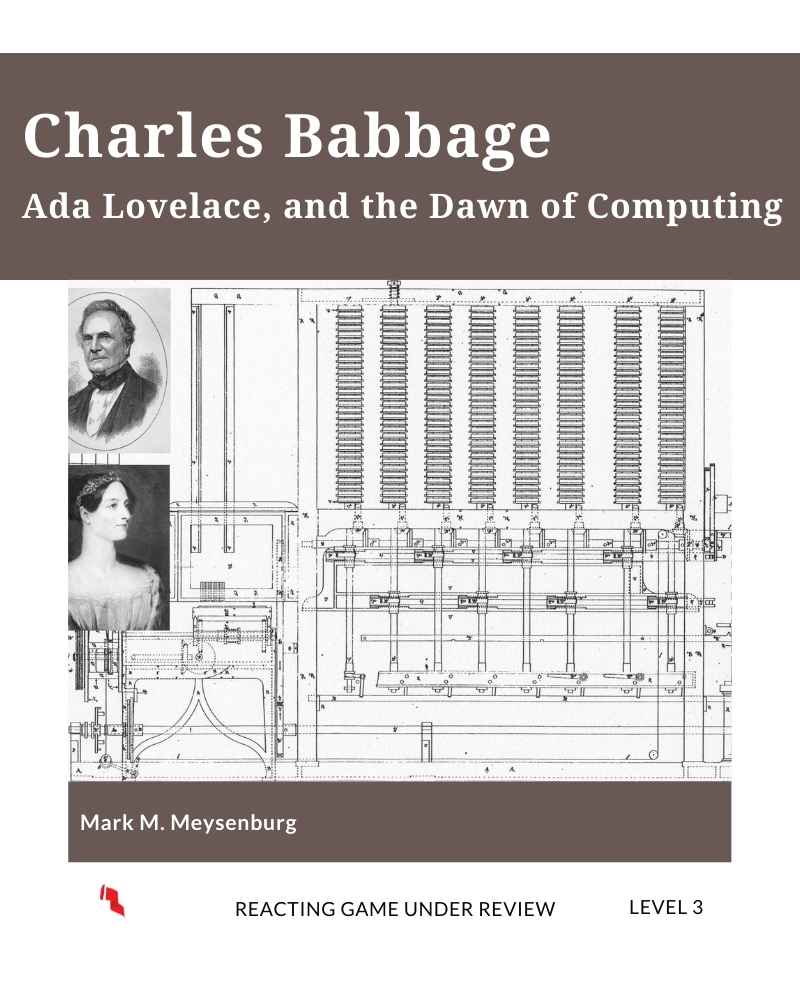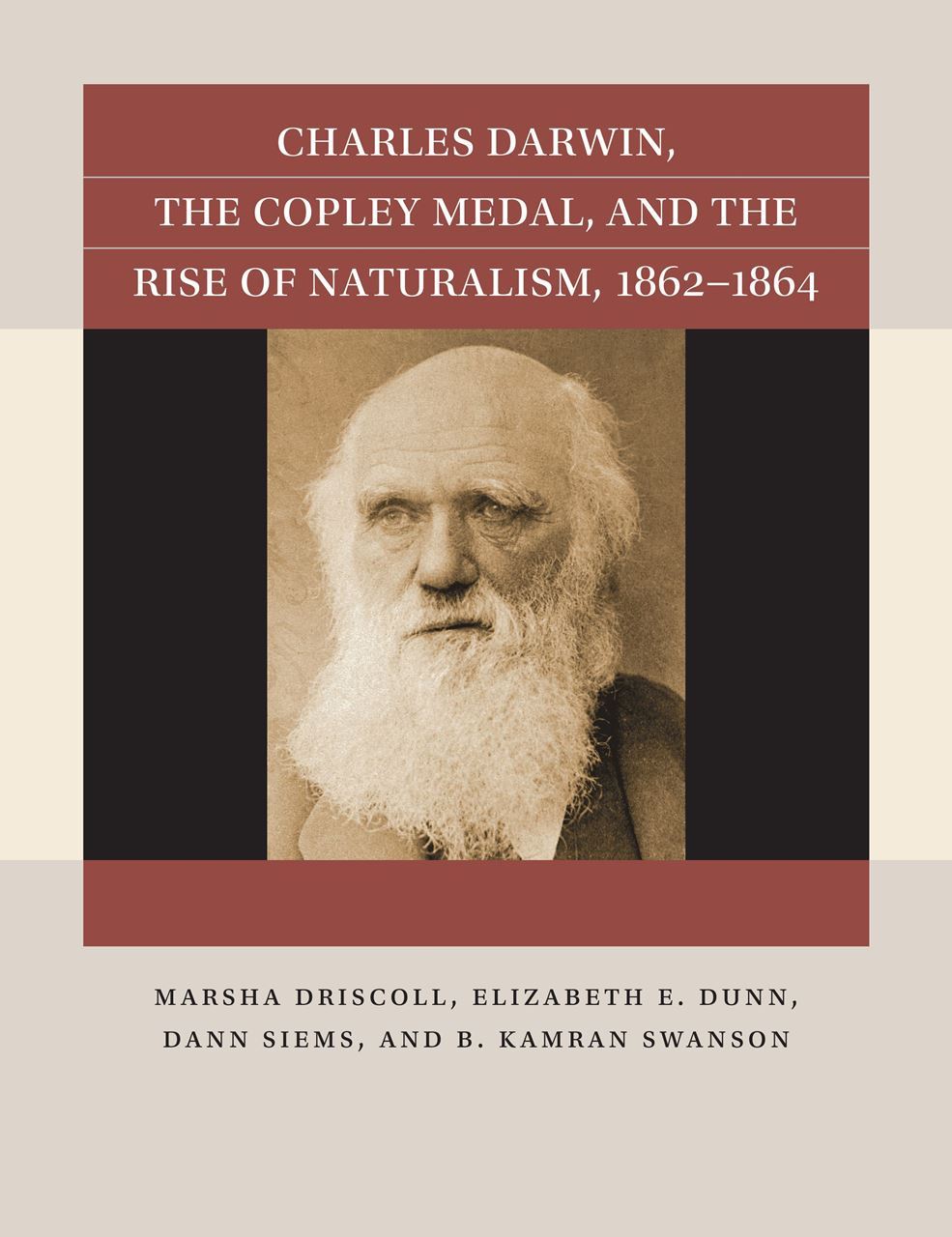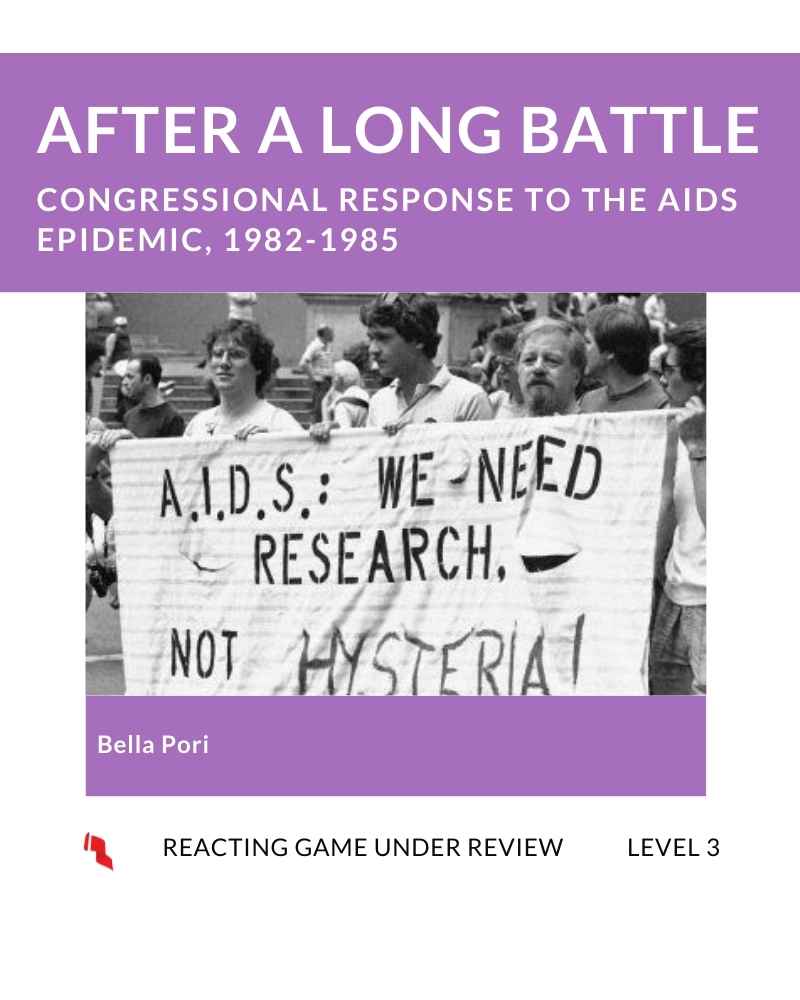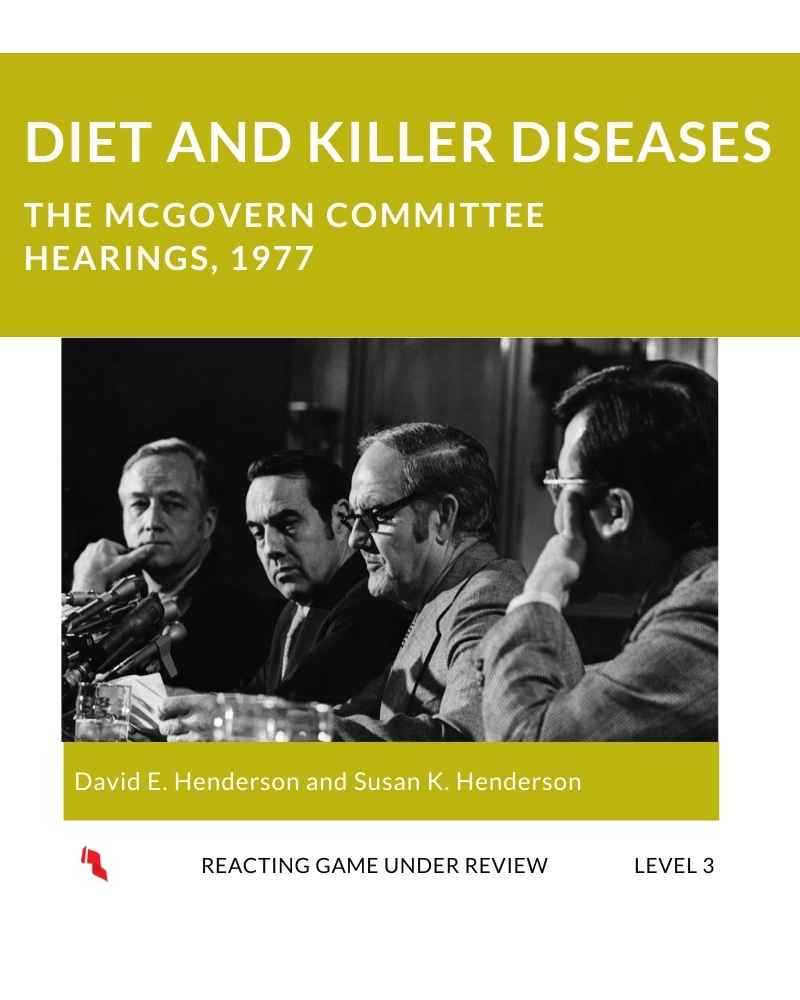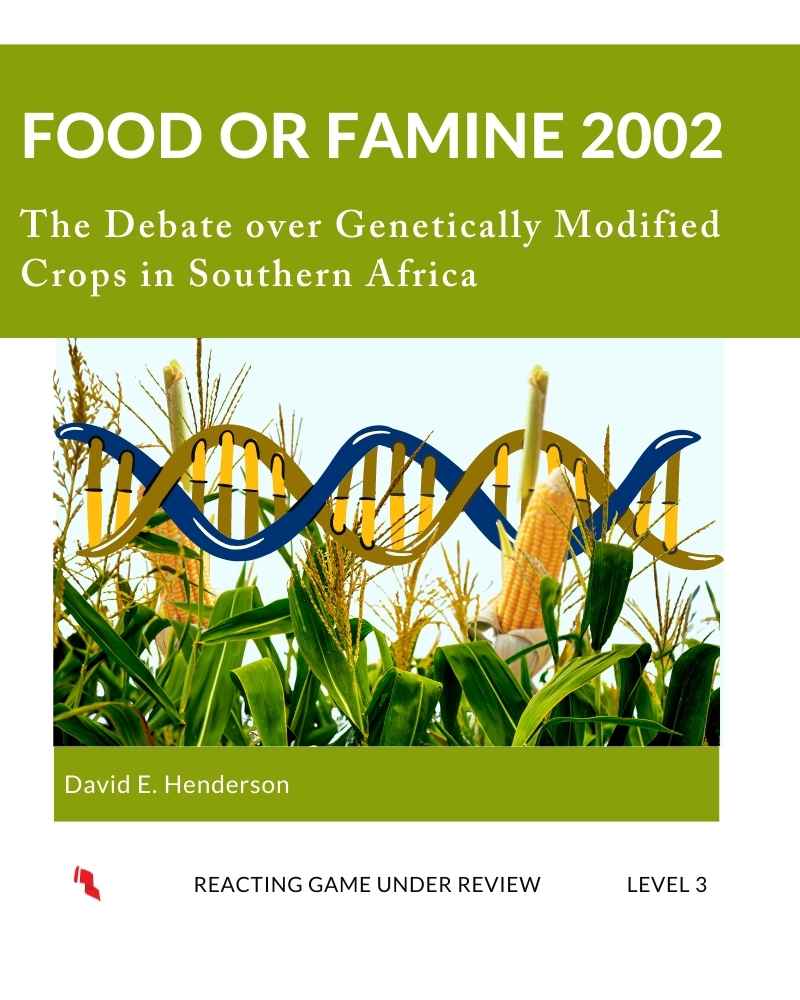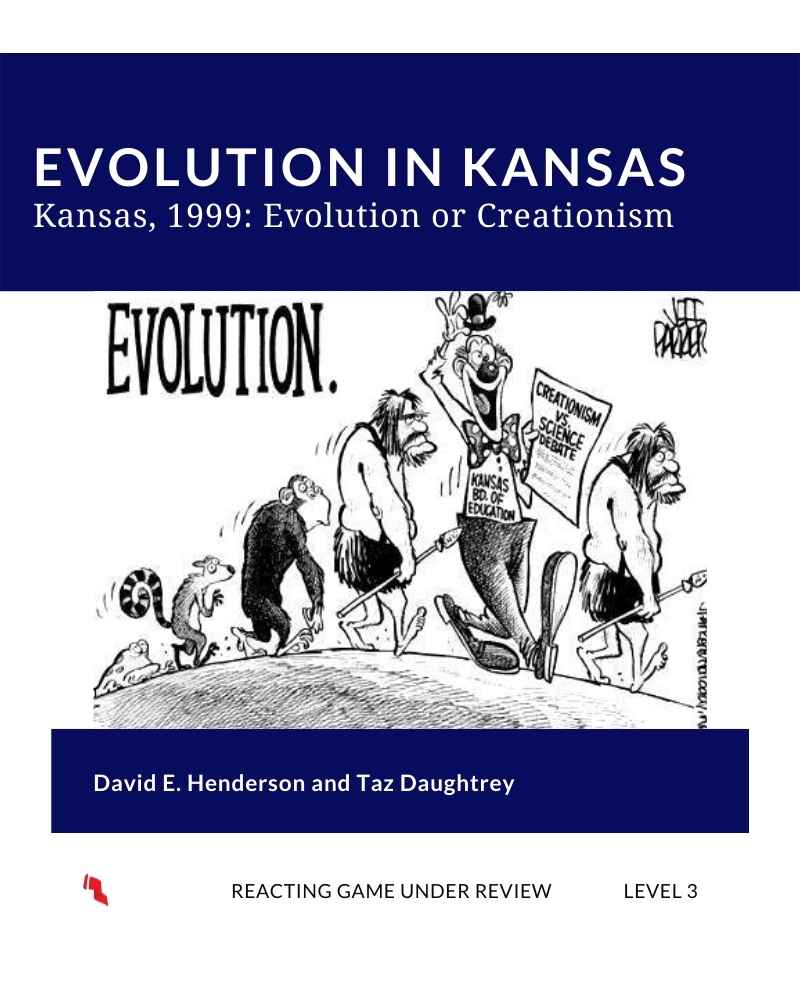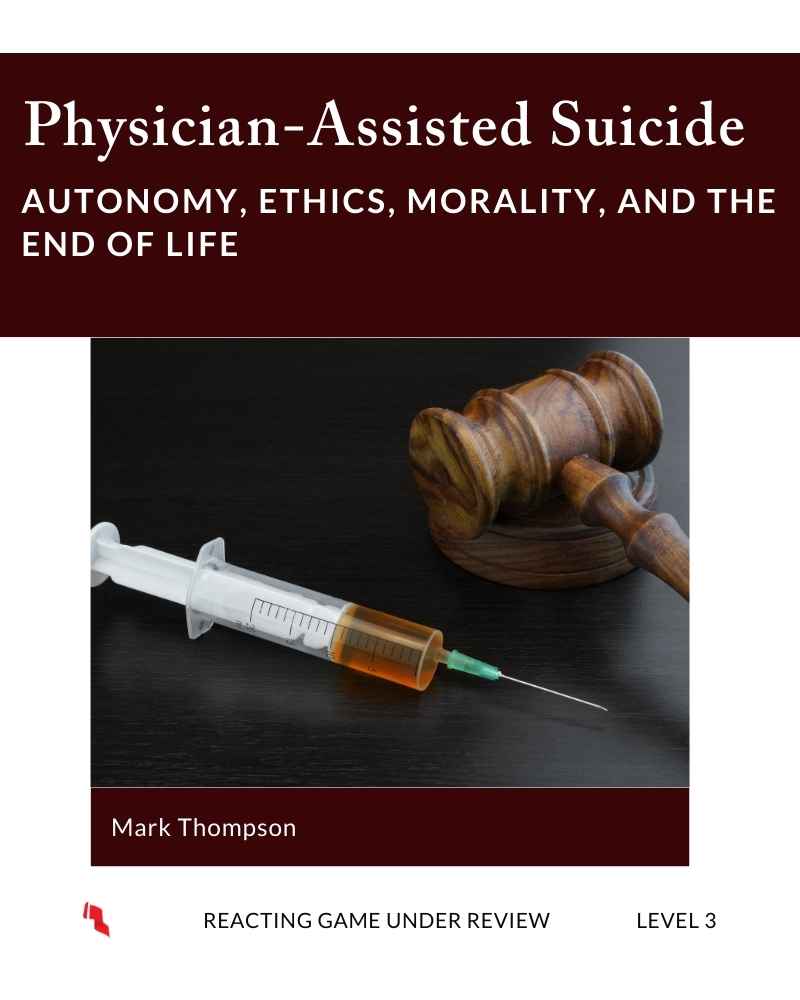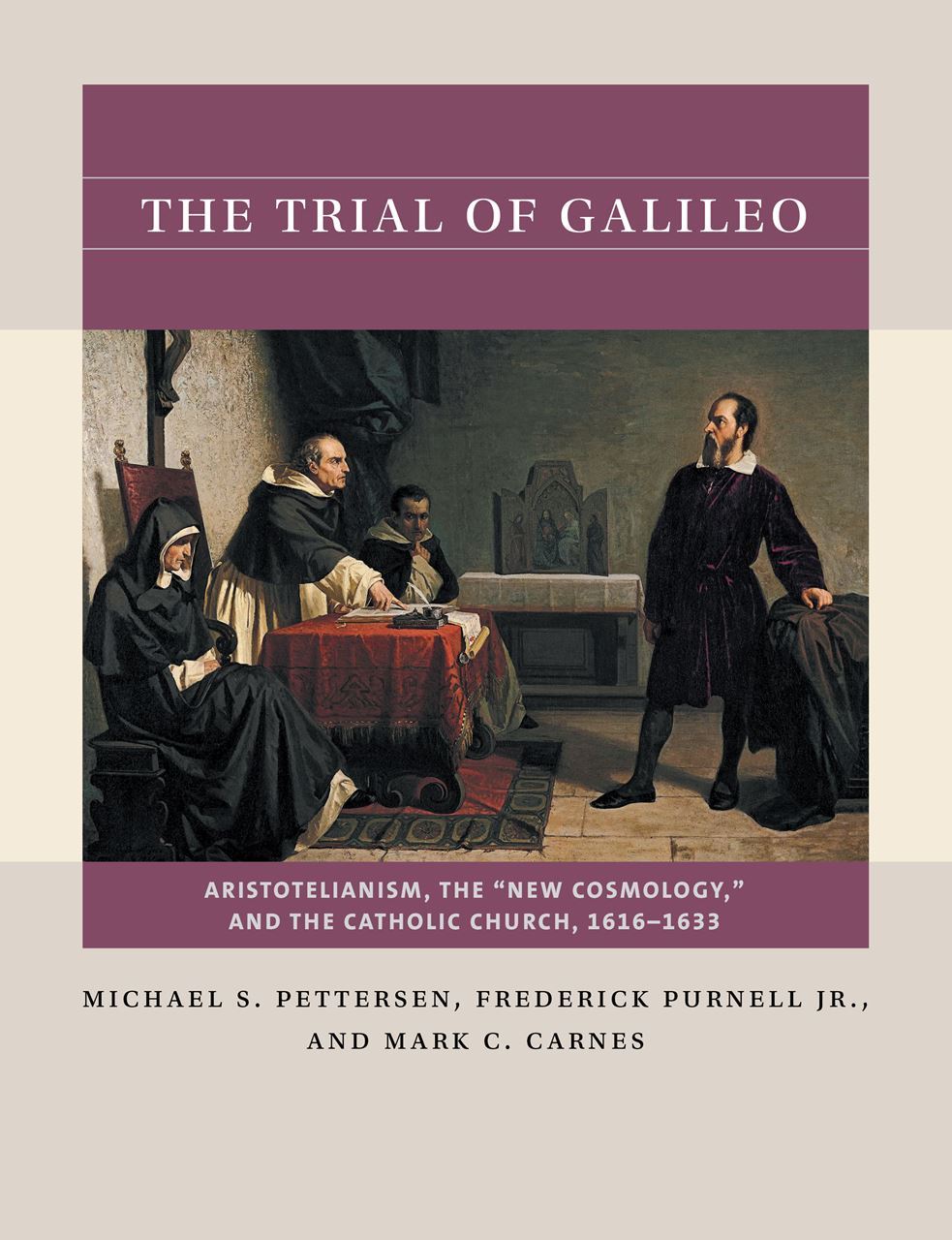|
Acid Rain in Europe, 1979-1989 Acid Rain in Europe covers the negotiation of the Long-Range Transport Pollution treaty. This was the first ever international pollution control treaty and remains at the forefront of addressing European pollution. 4-10 Sessions 11-40 Students 20th Century Europe Published Game (What's this Mean?) (STEM) |
Charles Babbage, Ada Lovelace, and the Dawn of Computing Should Charles Babbage be awarded funds from the British government for the development of his Difference Engine and/or Analytical Engine? Intellectual collisions concern the conflict between imagination and reason, the nature of science and scientists, and whether and to what degree science and engineering projects should be subsidized by the government. 8-12 Sessions 14-25 Students 19th Century Europe Level 3 Game (What's this Mean?) |
CHARLES DARWIN |
CHARLES DARWIN 2ND EDITION |
Climate Change in Copenhagen, 2009 Covers the negotiations at the Conference of Parties 15 meeting that was attended by a large number of national leaders. Also includes representatives of non-government organizations and the press. 4-6 Sessions 12-31 Students 21st Century Europe, International Published Game (What's this Mean?) (STEM) |
After a Long Battle: Congressional Response to the AIDS Epidemic, 1982-1985 Asks players to put themselves in the shoes of those living at the height of the AIDS epidemic in America when next to nothing was known about the virus. By taking the roles of congressional representatives, government epidemiologists, doctors, researchers, gay activists, preachers, journalists, and citizens, students can understand the radical changes to society when a new disease caught the country unprepared. 6-11 Sessions 10-30 Students 20th Century North America Level 3 Game (What's this Mean?) |
Diet and Killer Diseases: The McGovern Committee Hearings, 1977 Many trace the origin of the low-fat diet craze to the Senate hearings of the McGovern Committee in 1977. This game examines the scientific evidence available in 1977 by expanding the hearings to include a larger range of voices than were invited to the actual hearing. Students will take the role of senators and the media while examining scientific evidence at the time linking dietary fat to health. 3-8 Sessions 6-36 Students 20th Century North America Level 3 Game (What's this Mean?) (STEM) |
"Engines of Mischief": Technology, Rebellion, and the Industrial Revolution in England, 1817-1818 Players are faced with different choices about how to live and prosper at the dawn of the Industrial Revolution. Do you resist or embrace this new technology? Players must use new economic theories, parliamentary commissions, and news reports to debate the pros and cons of factories, the role of the government in the economy, taxation, workers’ unions, and the extension of political rights down the social order. 5-13 Sessions 10-28 Students 20th Century North America Published Game (What's this Mean? |
Food Fight: Challenging the USDA Food Pyramid, 1991 Set during a 1991 Congressional hearing that evaluated the USDA’s development of the Food Pyramid, a document that angered various agribusiness groups and some nutrition experts. This Open Access Reacting Game can be used in food and nutrition general education science courses and introductory chemistry and biology courses. 3-5 Sessions 11-35 Students 20th Century North America Published Game (What's this Mean?) |
Food or Famine, 2002: The Debate over Genetically Modified Crops in Southern Africa Set in an African conference at which nations facing famine are confronted with the choice between accepting genetically modified (GM) corn from the USA and the risk that they will not be able to export their agricultural products to the EU as a result or allowing people to starve. Students learn about GM foods and the controversies over their safety, both for health reasons and ecological reasons. 4-5 Sessions 6-29 Students 21st Century Africa, International Level 3 Game (What's this Mean?) (STEM) |
Kansas, 1999: Evolution or Creationism Christian Conservatives on the Kansas Board of Education have deleted macroevolution and Big Bang cosmology from the state science curriculum. The game centers on the election of a new Board of Education which must, for legal reasons, revisit the decision. Questions are raised about the role of religion in American society, the power of religious fundamentalism in the modern world, and the nature of science. 7-9 Sessions 12-30+ Students 20th Century North America Level 3 Game (What's this Mean?) (STEM) |
Physician-Assisted Suicide: Autonomy, Ethics, Morality, and the End of Life The California legislature, governor, and courts consider approval of the End of Life Option Act (EOLA) to legalize physician-assisted suicide. Players engage in the forty-year debate from 1976-2016 springing from the case of Karen Ann Quinlan, which raised questions about whether there is a right-to-die, the roles of family and physicians, and how the constitutional right to privacy is involved in end-of-life decisions 7-9 Sessions 14-30+ Students 20th Century North America Level 3 Game (What's this Mean?) |
The Trial of Galileo: Aristotelianism, the "New Cosmology," and the Catholic Church, 1616-1633 New science, as brilliantly propounded by Galileo Galilei, collides with the elegant cosmology of Aristotle, Aquinas, and medieval Scholasticism. Issues range from the nature of faith and the meaning of the Bible to scientific principles and methods advanced by contemporary scientists. 11-12 Sessions 14-32 Students 17th Century Europe Published Game (What's this Mean?) (STEM) |


